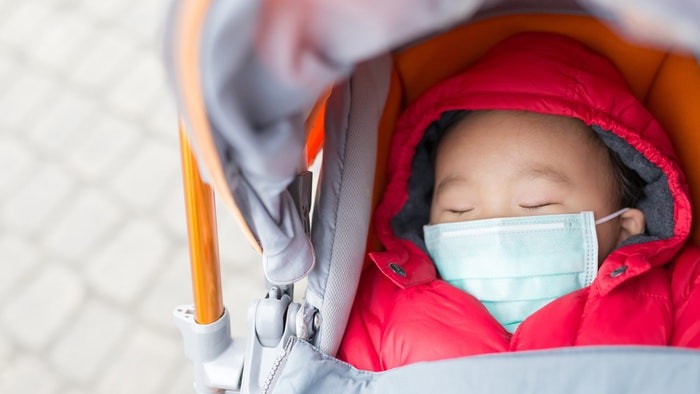(VOVWORLD) - According to a new UNICEF report, nearly 17 million babies are living in areas where air pollution is 6 times the World Health Organization's (WHO) limit. Breathing polluted air can damage brain tissue and undermine cognitive development.
 (Photo: romper.com) (Photo: romper.com) |
The report - Danger in the air: How air pollution can affect brain development in young children – says that breathing air pollution is similar to poor nutrition. It can impair cognitive development and damage brain tissue, especially during the first days of a child’s life. Micro contaminants can infiltrate blood vessels in the brain and cause brain inflammation and permanent damage to brain areas involved in learning and development.
According to satellite imagery analyzed by UNICEF, 12.2 million children less than a year old in South Asia live in areas with pollution levels that are at least six times the international limit. In East Asia and the Pacific region there are another 4.3 million.
Protecting children from air pollution not only benefits the children, it also benefits their societies by reducing health care costs, increasing productivity and producing a cleaner safer environment for everyone.
To minimize the negative effects of air pollution on children, the report proposes that parents reduce their children's exposure to harmful chemicals like tobacco smoke and cooking smoke, and feed them more breast milk.
In polluted areas, parents are advised to have their babies wear face masks and use air filtering systems.
The report also urged government to invest in clean, renewable energies to replace fossil fuels, expand affordable access to public transportation and urban green spaces, improve waste management, and eliminate major sources of pollution near schools, clinics, and hospitals.